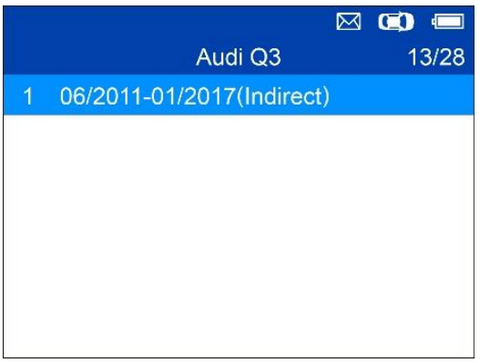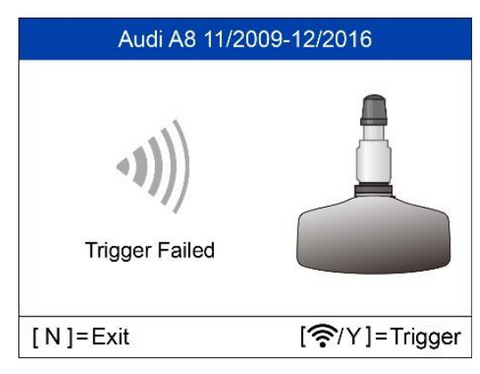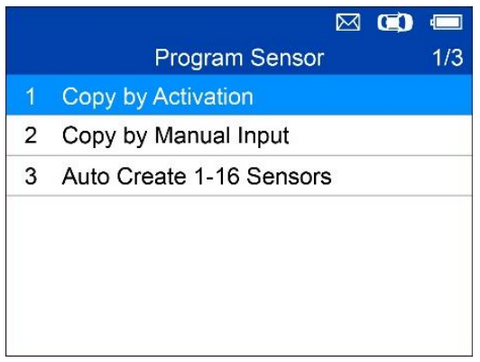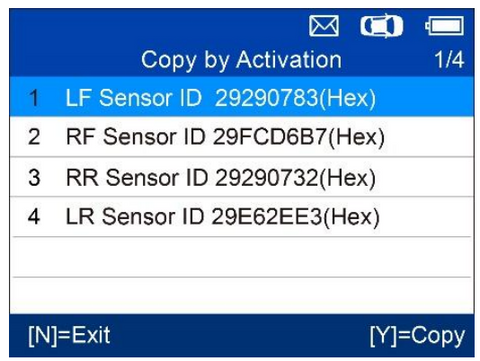Faster Delivery in 3-5 Days
Faster Delivery in 3-5 Days

Autel MaxiTPMS TS408 is a new generation of basic model tire pressure monitoring system tools. It aims to activate all known tire pressure monitoring system sensors, read sensor ID, pressure, temperature and battery status, program autel MX sensors, and provide relearning procedures in the tool. Ts408 has a large color display, fast maintenance speed and the latest software updates. It is an excellent partner for TPMS maintenance.
 |
Autel MaxiTPMS TS408 TPMS Service Tool Current price $169.00 |
The TS408 TPMS scanner is reasonably priced and very easy to use. I bought 4 Autel sensors online from online seller who said he would program them specifically to my car before sending. Once mounted on new wheels/tires it was clear the sensors were never programmed/activated.
I then contacted Autel tech support through their website and was very impressed. A real person got back to me quickly by email, and I was actually able to talk to him in person about what tool to get, and the steps needed to program the sensors.
I decided to get the TS408 tool, as it could perform all the functions I needed to get the sensors working. Just took a few minutes to clone my original TPMS sensors and get them working. Works perfectly for BMW328i x-drive. Was able to program sensors while already mounted in the wheels and on the car; just need to briefly lower tire pressure to less than10 psi while programming. The TS408 tool is well built, with solid feel and clear display. The menus are quite self-explanatory.
By NGC from Amazon
This unit works just as advertised. Install instructions could have been a little better. Pop up boxes ask you if you want to install these different things and without instructions as to what they are you are hesitant to install them. Kind of like the junk they attach to free downloads (Do you want to install and run xxxjunk file). Luckily that isn't what it is, it's the update software for the unit, but you would never know.
I wish it had a Print operation. It would be nice to be able to print out all the sensor information for a vehicle and their locations on the vehicle.
You are able to relearn other brand sensors if they are preprogramed for your specific vehicle so you don't have to purchase just the MX sensors. I am happy with the unit and would buy again.
By Curt from Amazon
I bought four sensors of the type MX-Sensor 2 in 1 (315MHz + 433MHz)(Screw-in) for replace them in my Nissan Frontier V6 4.0 SE 2008.
Due to a test failure message during programming of the sensor, I had to contact Autel technical suport. Excellent support from Nort America; null support from Latin America (my first option since I live in Mexico).
Packing list.
All four sensor were received from manufacturing/vendor as follows:
No metal rod for its installation.
Valtage battery was 3.04v (3v-3.3v)
I faced several issues to install the four sensors due to all were packed out without metal rod in order to be used during it installation.
Programming of the sensors.
After all four sensors were programmed, the pressure they read is 4 psi less than real pressure (read by two kind of pressure gauge - in the picture show only one). This could result in 4 less psi to trigger the warning light on the dashboard according to the pressure Nissan recommends (35 psi).
After this and so far, everything is ok with them.




By DOrtega from Amazon
Perform basic TPMS functions through the Quick service mode.
Scan Sensor, Program Sensor, Relearn Procedure and Sensor Information.

Select test vehicle to start a TPMS service session.


1. For vehicles using direct TPMS:


Functions provided in Quick Mode: Scan All Sensors, Scan Single Sensor, Program Sensor, Relearn Procedure, and Sensor Information.
2. For vehicles using indirect TPMS:


Follow the instructions displayed to perform Relearn for indirect TPMS.

Select Scan All Sensors. Hold the tool close to the sensor or close to the tire sidewall right above the sensor.

Press [ ] to trigger the sensors.
] to trigger the sensors.

The device is receiving data from the sensor.

Trigger Successful.

The next sensor is waiting to be activated. Press Trigger to scan all the sensors one by one.

If trigger failed. Press [ ] to try again.
] to try again.

All the sensors are activated.

Press Y to view all the data of sensors. The ID, pressure, temperature and voltage of all the sensors display on screen.

Hold the tool close to the sensor or close to the tire sidewall right above the sensor.
For first time use:

Press Y or Trigger to trigger the sensor.

The device is receiving data from the sensor.

Trigger Successful.
The ID, pressure, temperature and voltage of the sensor display on screen.

Failed.
Press Y or Trigger to try again.

This function is used to activate or trigger the original sensor and retrieve the ID of the sensor, and then write the original sensor ID into the new MX-Sensor.

Press Y to select Copy by Activation.

Press [Up] or [Down] to select the sensor to be copied. Place the tool near the sensor to be copied. If the sensor is still attached to the wheel, hold the tool close to the tire sidewall right above the sensor.

Press [Y] to enter the activation interface.

Press [ ] to activate the corresponding sensor.
] to activate the corresponding sensor.

Press [N] to return to the previous menu. If the ID has been copied successfully, press [Y] to copy the selected ID and program the sensor.
If there is no ID yet, press [Y] to enter the activation interface.
![]()
If the sensor programming is successful, the sensor icon will appear on the right side of the list item.
A tire pressure monitoring system (TPMS) is an electronic system designed to monitor the air pressure inside the pneumatic tires on various types of vehicles. TPMS report real-time tire-pressure information to the driver of the vehicle, either via a gauge, a pictogram display, or a simple low-pressure warning light. TPMS can be divided into two different types — direct (dTPMS) and indirect (iTPMS). TPMS are provided both at an OEM (factory) level as well as an aftermarket solution.
In the United States, the United States Department of Transportation (NHTSA) released the FMVSS No. 138, which requires an installation of a Tire Pressure Monitoring System to all new passenger cars, multipurpose passenger vehicles, trucks, and buses that have a gross vehicle weight rating (GVWR) of 4,536 kg (10,000 lbs.) or less, except those vehicles with dual wheels on an axle, as of 2007. In the European Union, starting November 1, 2012, all new models of passenger cars must be equipped with a TPMS, with even tighter specifications that will be defined by the UNECE Vehicle Regulations (Regulation No. 64). From November 1, 2014, all new passenger cars sold in the European Union must be equipped with TPMS. On July 13, 2010, the South Korean Ministry of Land, Transport and Maritime Affairs announced a pending partial-revision to the Korea Motor Vehicle Safety Standards (KMVSS), specifying that “TPMS shall be installed to passenger vehicles and vehicles of GVW 3.5 tons or less, ... [effective] on January 1, 2013 for new models and on June 30, 2014 for existing models”. Japan is expected to adopt European Union legislation approximately one year after European Union implementation. Further countries to make TPMS mandatory include Russia, Indonesia, the Philippines, Israel, Malaysia and Turkey.
When diagnosing TPMS systems, you should understand what the TPMS tell-tale light means.
When turning the ignition OFF to ON, the TPMS tell-tale should come on, and then go off, which indicates the system is working fine. If the light stays on, there would be a pressure problem. If the light flashes, there is a system problem, which can be faulty sensors or the fact that the vehicle hasn’t learned the sensor yet.
The significant advantages of TPMS are summarized as follows:
Leave a comment